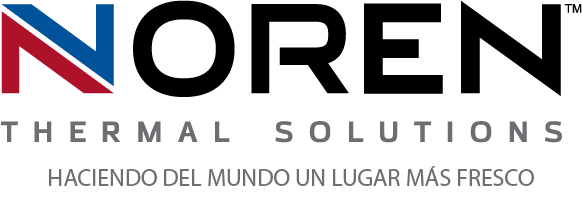 The quest to transform most or all of a company’s operations into greener and more eco-friendly processes is an important one. It’s also a goal shared by most companies in most of today’s industries, and the efforts that each organization takes depends largely on the specific industry that it’s in. In many cases, however, electrical thermal management is one of the more significant energy conservation concerns. Fortunately, most companies can overcome that concern and implement more efficient and eco-friendly solutions with the help of modern heat exchanger technology.
The quest to transform most or all of a company’s operations into greener and more eco-friendly processes is an important one. It’s also a goal shared by most companies in most of today’s industries, and the efforts that each organization takes depends largely on the specific industry that it’s in. In many cases, however, electrical thermal management is one of the more significant energy conservation concerns. Fortunately, most companies can overcome that concern and implement more efficient and eco-friendly solutions with the help of modern heat exchanger technology.
The role of thermal management
The concept of thermal management is vital to many different processes. The most common of which is the cooling of electrical enclosures, such as control panels, to prevent excess waste heat from accumulating into pockets and damaging sensitive electrical components. While common, the concern of electrical cooling is one of the biggest thermal management challenges. Companies need a way to consistently cool their electrical equipment, and doing so with solutions such as air conditioners and air compressors can quickly wrack up enormous energy costs. However, those costs used to be necessary until heat exchangers provided a much less costly and more easily manageable solution.
How heat exchangers approach heat transfer
Conventional electrical thermal management solutions were cumbersome for many reasons, such as the complex equipment they required and the large amounts of energy that they used. Most of those hindrances came from the fact that those solutions relied on generating chilled air to circulate throughout an electrical enclosure. This process not only requires a lot of energy, but also the use of potentially hazardous chemicals such as Freon. By contrast, heat exchangers approach electrical thermal management differently – by transferring electrical waste heat instead of overpowering it with colder air. The fluid in a heat exchanger absorbs waste heat continuously, then transfers it to a cooler area or heat dispensary unit (such as a heat sink) to release the heat and continue the cycle.
The difference heat exchangers make
The ability to dramatically reduce a company’s energy usage for their thermal management applications gives heat exchangers a significant advantage in the realm of green energy. However, their benefits go beyond saving energy costs. For example, the ability to collect and transfer heat efficiently and at a rapid pace has made heat exchangers an important component in more direct green energy efforts, such as implementing solar and wind energy initiatives. For more information about what heat exchangers can do for green energy, call Noren Thermal Solutions in Taylor, TX, at 866-936-6736.







